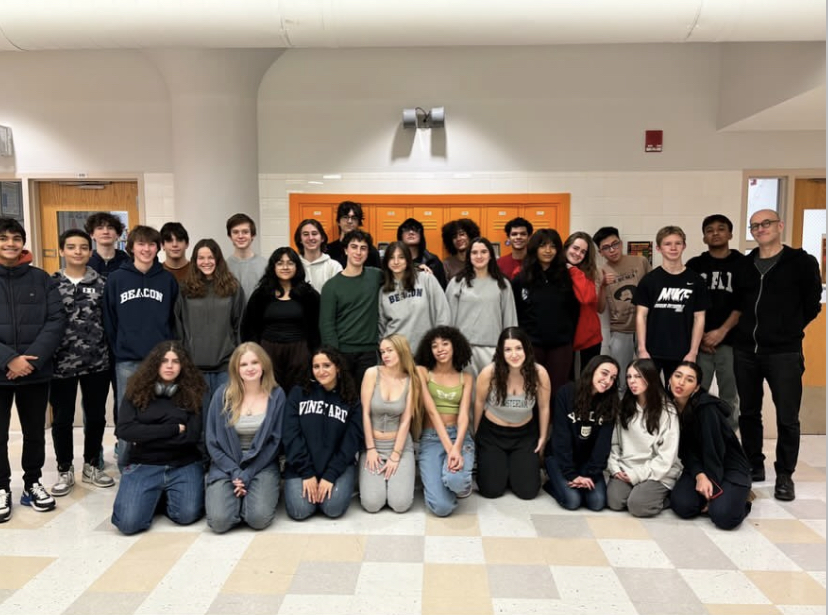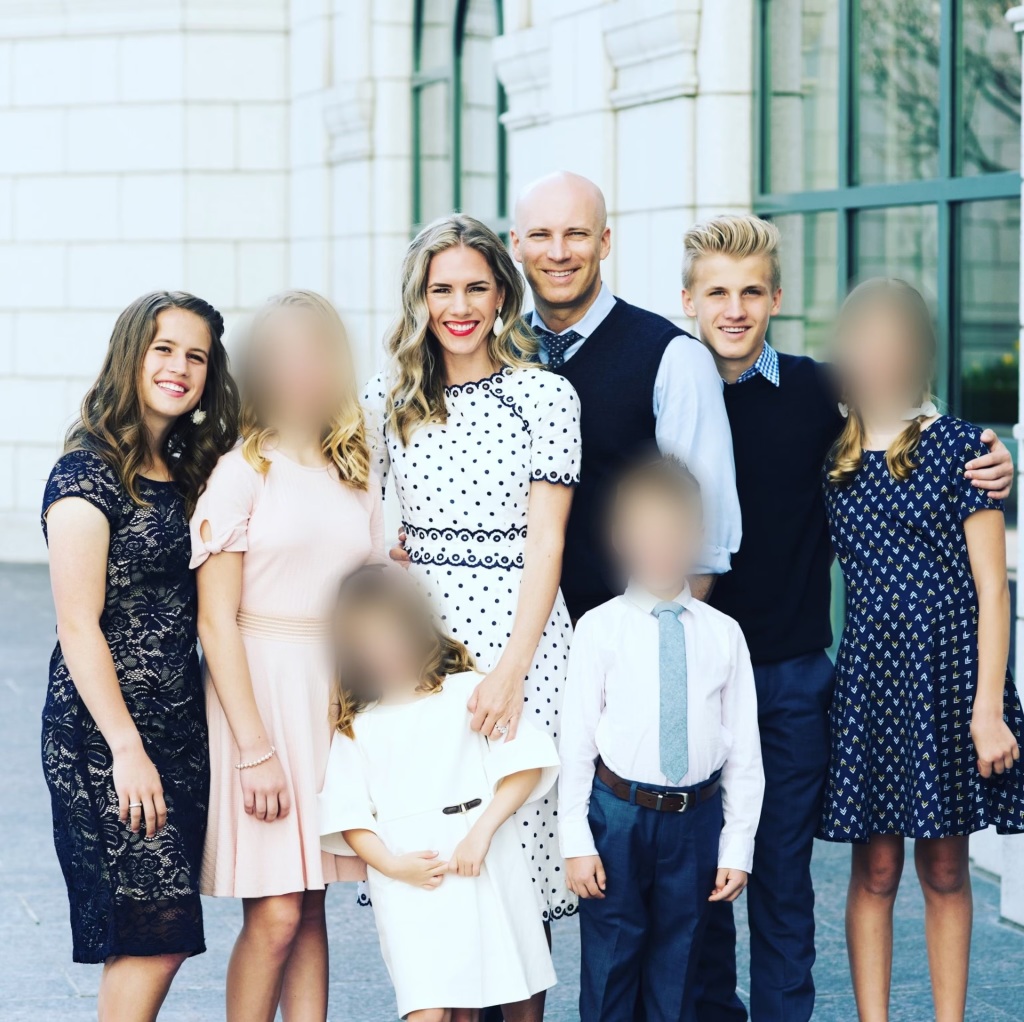By Ariel Konieczko

It’s never a good sign when a movie’s previews outshine the plot. In the case of Priscilla, Sofia Coppola’s new film based on Priscilla Presley’s 1985 autobiography Elvis and Me, the unimaginative set, dull script, and disappointing cast had me checking my watch every twenty minutes, eager to leave the theater.
Buying my ticket to Priscilla was the highlight of my week, mostly because I expected greatness. I hoped the story of how Mrs. Presley (Cailee Spaeny) met, married, and eventually divorced Elvis (Jacob Elordi) would add to the newly surfaced excitement surrounding Baz Luhrmann’s 2022 biopic Elvis. After Elvis was released, old-school music and vintage fashion subtly reappeared in pop culture. Doja Cat released the song “Vegas,” and people actually paid attention to Oscar nominated Austin Butler, previously a Disney Channel actor. I thought Priscilla would have the same effect: leave audience members with the ethereal glow and emotional stir that comes from viewing a great movie. Unfortunately, this was not the case. During Priscilla, the elderly couple to my left passed what was possibly the worst 110 minutes of their marriage, slurping down martinis, while the girl to my right softly snored, fast asleep. I don’t blame her.
What exactly made Priscilla so unbearable? Perhaps, the fact it was so lifeless. Nothing on screen kept my attention, it just left me craving more. When creating a film about the “King of Rock and Roll” and his captivating, fashionable wife, there’s a high bar to meet in the wow factor category. While I expected a sparkling set, glamorous costumes, and passionate musical numbers like those in Elvis, I can only remember numerous shag carpets, various shades of dull pink, and faint whispers of old Dolly Parton songs.
Spaeny, a 25-year-old actress, played Priscilla from the character’s early teens to mid-thirties. Spaeny’s short stature, a decent makeup team, and the audience’s drooping eyelids allowed her to portray a wide range of ages. Filled with speechless montages, Priscilla doesn’t give the cast much time to practice their acting skills. With few lines, Spaeny’s acting can be best judged by her varied facial expressions: romantic, optimistic, fearful, enraged, and most frequently, bored with her own life.
That’s the thing. It’s hard to be excited when the movie you’re watching is all about another person’s state of boredom. Coppola drags the audience through many days-in-the-life, where Priscilla repeatedly walks Graceland’s halls, restlessly strokes her fluffy dog while sitting on a gray couch, and tediously paints her toenails, waiting for phone calls.
The film attempts to portray the hardships Priscilla faced when married to Elvis. Priscilla, who met Elvis at the age of 14, grows up in his home and suffers from both his emotional abuse, extreme narcissism, and uncontrollable violence. Coppola weaves the themes of stunted girlhood and rushed loss of innocence into the movie, yet she only reveals the most external layers of Priscilla’s pain. In fact, while Priscilla starts out featuring its namesake, by the end of the first hour, Elvis is calling all the shots.

Until now, the name Jacob Elordi has been associated with one of two things: The Kissing Booth, an unbearable young adult trilogy and cinematic catastrophe, or Euphoria, an intense young adult TV drama series. In both cases, Elordi isn’t necessarily what’s making each show bad. In fact, before I saw the film I wondered if Priscilla might give Elordi a chance to reveal his full acting potential. But, between his accent, costume, and stature, Elordi struggles to embody Elvis. The Australian actor’s voice longs to resemble Elvis’s slow southern drawl but isn’t consistent from scene to scene and sounds like he’s from a nonexistent country.
Although the real Priscilla Presley seems to enjoy Coppola’s new movie, the late Lisa Marie Presley, the iconic couple’s only child, thought otherwise. Lisa Marie passed before the movie was complete, but, according to Vanity Fair, she read the script and said that she “found Coppola’s portrayal of her father to be ‘shockingly vengeful and contemptuous,’” even asking Coppola to “reconsider” the movie altogether.
Throughout the film, Elvis is depicted as a child groomer, a trait which makes his stylish clothing and exciting persona feel much less spectacular; his abuse toward Priscilla gives him the quality of being the manipulative ringmaster to his personal circus. Elvis sees Priscilla as his doll: from clothing to make-up to education to activity, he molds her into the wife of his imagination. Coppola uses the symbol of gold throughout the film as a mark of Elvis’ unparalleled power. In one scene, Priscilla can’t wear a gold dress because the color will take attention away from her husband. However, the symbol of gold is overused throughout other works, and as the most noticeable motif in Priscilla, it feels too conventional.
Another one of Coppola’s unoriginal motifs is drug use, which builds as Priscilla loses more and more of her autonomy. Elvis introduces pills into Priscilla’s life, which she readily accepts and soon overuses. In one scene, Elvis and Priscilla take LSD-laced sugar cubes and both fall into a hallucinogenic trance. The trance is illustrated by a too-long slo-mo montage that is tacky and irrelevant to the plot. It’s cringy watching Spaeny and Elordi whisper into stuffed animals’ ears and roll around on the floor while high. I ask myself if this montage was necessary in a movie so full of montages, and if Coppola was trying to play “cool kid” with the incorporation of drugs in the architecture of her film.
In three months, when I forget most else about the movie Priscilla, I’ll probably only be able to recall the ending– Coppola’s most successful attempt at a meaningful message. After Elvis throws a chair at her, Priscilla denounces their marriage, gets in her car, turns the radio to Dolly Parton’s “I Will Always Love You,” and drives through the gates of Graceland, a free woman. The choice of song signifies that Priscilla will always be emotionally tied down by Elvis, and Spaeny’s glum face makes the viewer think she’s regretting her decision to leave. What does this movie say about feminism? That it’s hard for women in pain to break free from their oppressors. That leaving an abusive relationship is the first step in healing. That simply driving away won’t solve every problem. Although Coppola’s understated ending wasn’t perfect for the cinema, it may be meaningful in a real-life context. People don’t go to the movies to see their own lives depicted on the screen, yet Coppola’s ending carries meaning in its relatability.
At the very least, I’m grateful a movie called Priscilla doesn’t end with a clip of Elvis.



